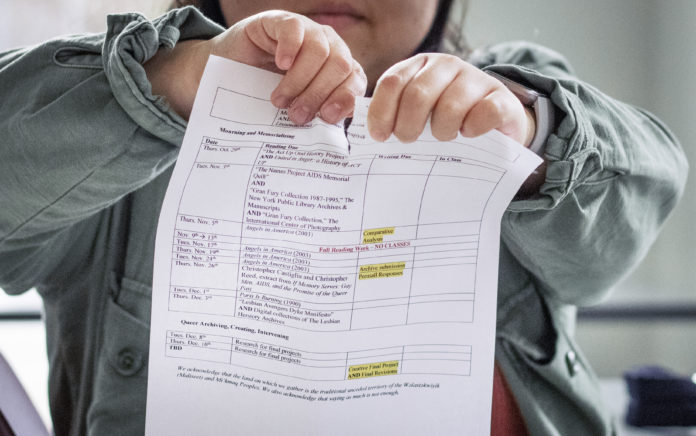

Sarah Vannier, an assistant professor in psychology at St. Thomas University, made big changes to her courses in order to help her students succeed this semester. The online learning platform has been challenging for a lot of students in many aspects.
“Students are having to learn in a whole new way,” said Vannier in an email. “That takes extra time and extra energy. Some of the skills that help us succeed in face-to-face learning don’t translate perfectly to a remote setting.”
In order to combat students burning out from too much work, Vannier chose not to have tests in her child development course. Instead, she’s focusing on textbook readings, smaller assignments and one final project.
In her research methods course, she cut some material and tried to simplify assignments if possible. Students were also given a week off from new content to work on an essay.
“Cutting too much will leave students without the skills they need to succeed in future psychology courses. It has been a tricky balance to find,” she said.
“This term has really forced me to focus on quality over quantity and I plan to keep doing that in the winter.”
Vannier spoke to her students and looked at the results of the student survey the university conducted before planning her fall semester courses.
“I spent a lot of time this summer reading and learning about remote teaching and how to support students learning in this new environment,” said Vannier. “I have also made adjustments as we go through the term.”
Still, she said she found some advantages to teaching online. Students in Vannier’s child development course use Perusall, one of the new tools STU professors can use, to work together on textbook readings.
“Because my child development students are discussing the textbook I have been able to see all of the amazing ideas and insight they bring to the course,” said Vannier. “These conversations are so much more rich than what we would have in a 50 person lecture-based course.”
She said she’s seen some students who are thriving in remote courses.
Vannier isn’t the only professor who made changes to her course material.
First-year student Sabrina Milburn had a “large percentage” of assignments cut from one of her criminology courses.
Milburn said some students said the assignments, which were “essentially a discussion,” were too difficult, but she didn’t feel the same. With a portion of course missing, she said she doesn’t feel like she’s learning as much as she expected.
“The change has made me and my friends feel like we’re not getting the most out of the class now, especially this happening while online,” she said. “I’m thinking about leaving next semester, taking a year off and working.”
STU pushed the first day of the winter semester from Jan. 6 to Jan. 11 which Dawn Russell, president and vice-chancellor at STU, said in a letter to students and faculty would “allow faculty and students as much time as possible to prepare for the term.”
With the winter semester fast approaching, Vannier is optimistic. Faculty and students will have more experience with online learning under their belts. She hopes that means students will develop new study habits and professors will continue to adjust to new teaching methods.
“We have the stress of living in a pandemic. I think faculty are struggling as well [as students] for the same reasons,” Vannier said.
“What we are all trying to do is a hard thing to do. We will all get better at it over time, but it is hard.”
